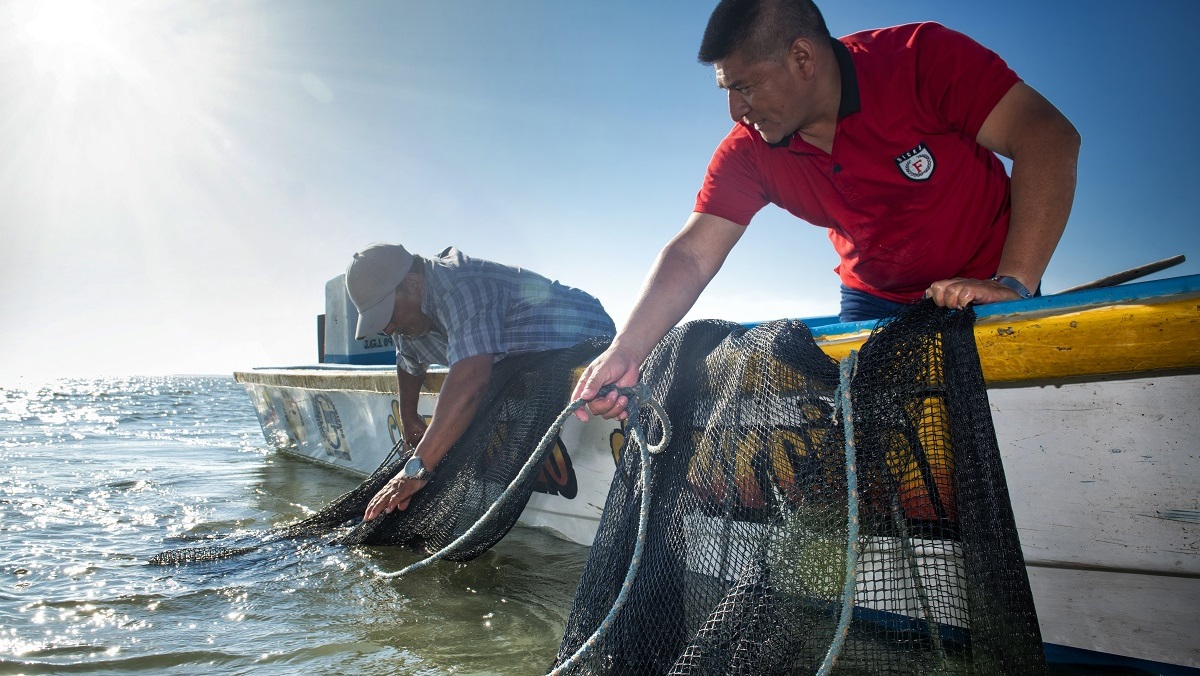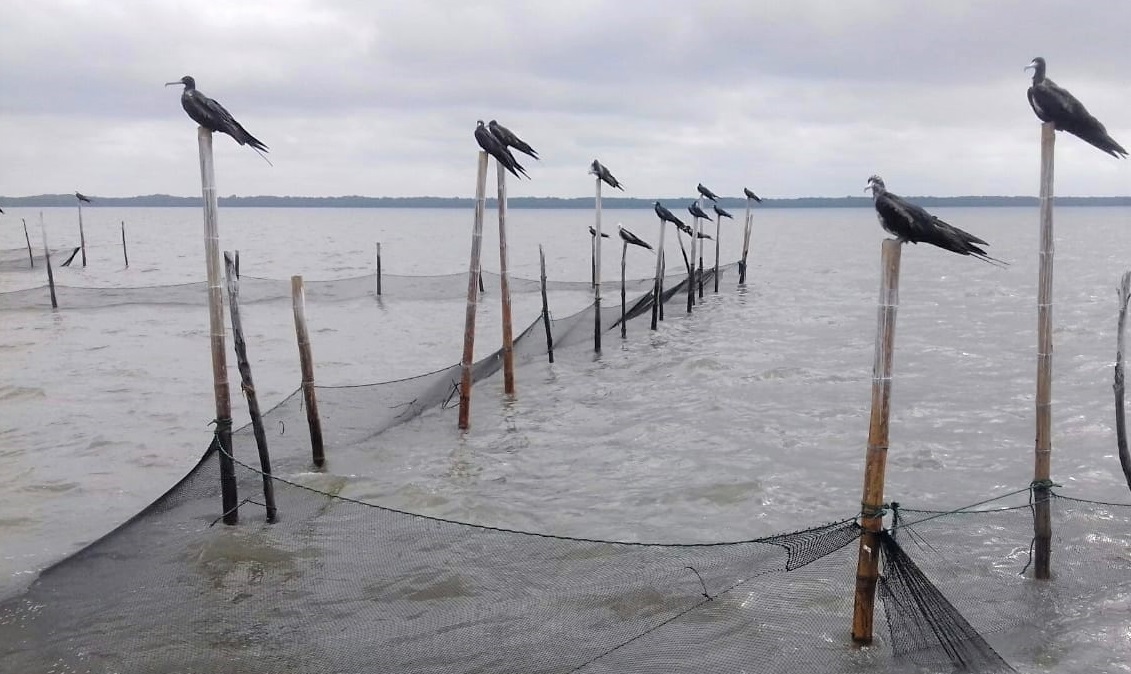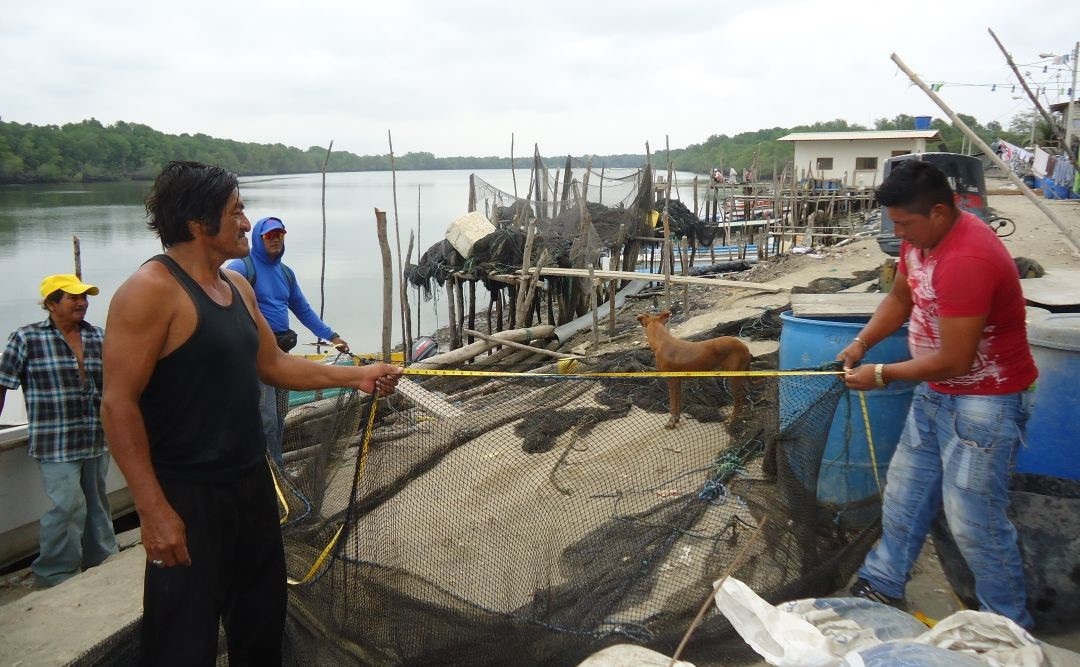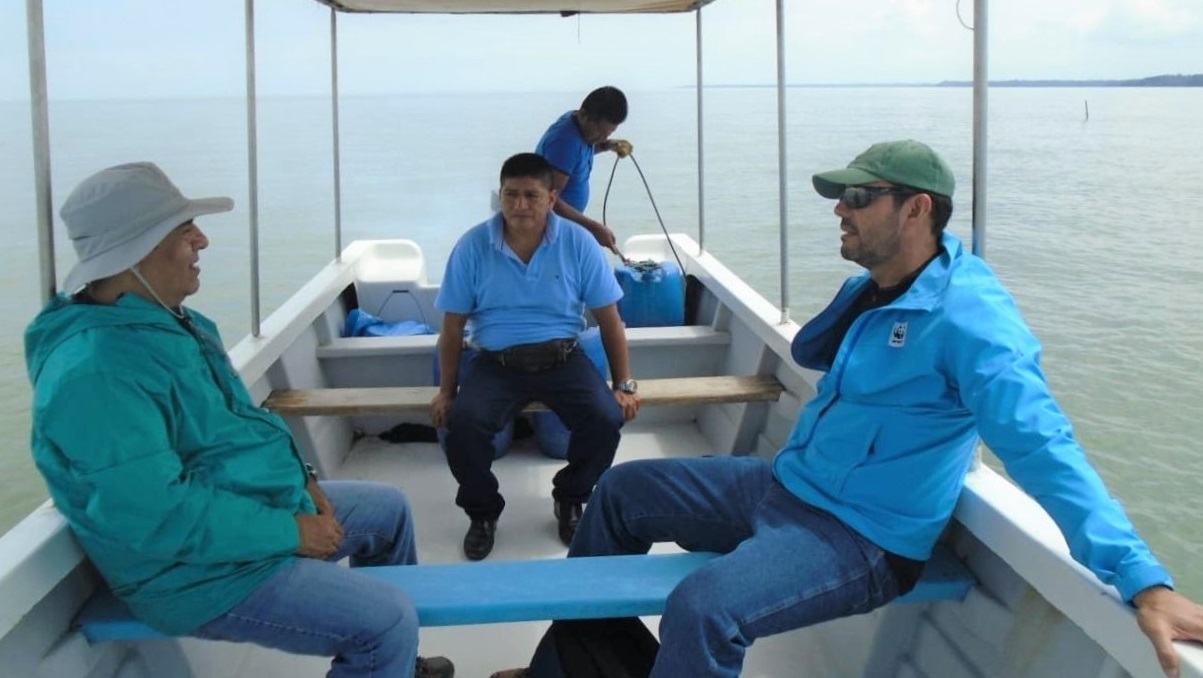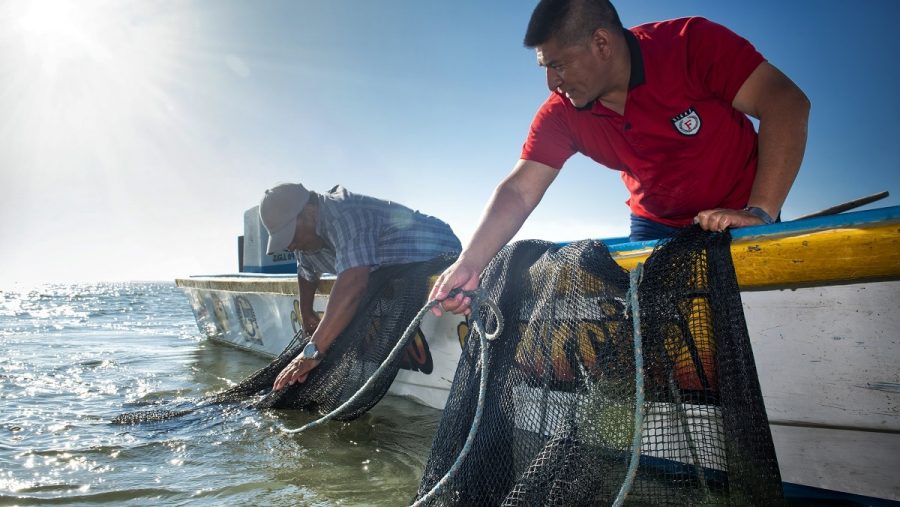23 September 2020 | Gulf of Guayaquil, Ecuador
What are your early memories of the ocean?
I have a lot of memories of the ocean, beautiful memories. I remember that I cried when my father went fishing with my older brother, because they didn’t want to take me with them. I was a very curious child and could not wait to experience the fishing life. There was no school in the village and there was little to do for children, so I spent a lot of time on the beach. I was fascinated by the birds, shrimp, fish: all the animals I could see from the beach. When I was older and my dad took me with him in his boat, I learned more about marine life. Finally, I had the opportunity to become a fisherman, just like my father, grandfather and great-grandfather. To this day I still love fishing and the sea.
And today, what does the ocean mean to you?
The ocean sustains my family, and the rest of our community, every day. We always say that the ocean not only provides for us today; we have to leave something for tomorrow. Fishing is the most beautiful thing in the world, but we need to take care of the marine ecosystem so that future generations can keep fishing. The ocean gives us everything we need: fish, shrimp, crab – even oxygen. Mangroves are like lungs that provide oxygen to all of us. I am part of an association that has permission to use a mangrove area to fish for shrimp and I am very aware that we have to protect it.
